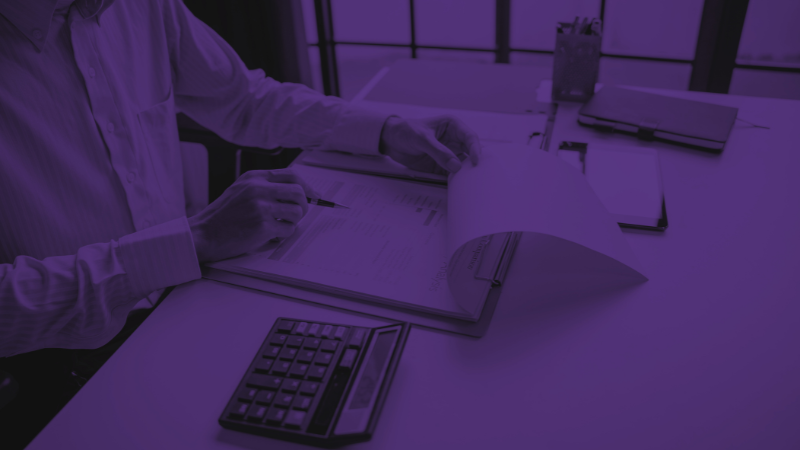
The Hidden Costs of Manual Data Collection - And How Digitalization Changes the Game

In today’s global logistics landscape, accurate emissions reporting isn’t just a regulatory requirement—it’s a competitive advantage. But while sustainability and accountability are front and center, the processes many organizations rely on to collect and manage emissions data remain inefficient and error-prone.
The hidden costs of manual data collection and exchange—ranging from inconsistent formats to incomplete records—are quietly draining resources, stalling sustainability goals, and undermining decision-making. As supply chains grow in complexity, so do the challenges of maintaining data integrity across diverse stakeholders.
The Price of Inaccuracy
Manual data collection and exchange methods typically involve extracting emissions data from transport providers using different systems, spreadsheets, or even PDFs. This leads to:
-
High error rates due to manual entry and reconciliation.
-
Significant time and resources from staff to validate and process data.
-
Poor data accuracy, driving over-reliance on default or estimated emissions values.
-
Limited transparency into emissions hotspots and reduction opportunities.
-
Lost time due to mismatched formats, incomplete data, and lack of automation.
The result is clear: organizations spend more time managing data than managing emissions.
The Power of Standardization
Standardization transforms fragmented emissions data into a strategic asset. Through the iLEAP initiative (Integrating Logistics Emissions and PCFs), Smart Freight Centre and the SINE Foundation are working with the industry to establish an interoperability protocol that streamlines emissions data exchange across the supply chain.
The Power of Standardization
Standardization transforms fragmented emissions data into a strategic asset. Through the iLEAP initiative (Integrating Logistics Emissions and PCFs), Smart Freight Centre and the SINE Foundation are working with the industry to establish an interoperability protocol that streamlines emissions data exchange across the supply chain.
According to the iLEAP protocol, the benefits of standardization, that are at the core of iLEAP include:
-
Low-cost access to granular emissions data.
-
Faster processing times through structured, automated transactions.
-
A level playing field due to open-source work that enables equitable participation and lower costs for implementation.
-
Operational efficiencies, as standardized data improves process integration.
-
Accelerated progress toward decarbonization targets.
-
First-mover advantages for early adopters in the sustainable logistics space.
These outcomes are not hypothetical—they’re already being realized. iLEAP’s growing global community includes over 11 tools implementing the protocol, with consistent positive feedback on documentation and implementation support. Read more here.
Digitalization: From Burden to Breakthrough
Digitalizing emissions data workflows doesn’t just eliminate manual bottlenecks; it opens the door to entirely new possibilities:
-
Automated data exchange reduces human intervention and the risk of errors.
-
Interoperable systems ensure data can flow between shippers, carriers, logistics service providers, and platforms—regardless of technical setup.
-
On demand data exchange helps logistics managers make proactive, sustainability-driven decisions.
Think of it like banking: decades ago, different banks couldn’t easily exchange information. But today, standard protocols like SWIFT allow seamless, secure financial transactions across the world. iLEAP is creating that same kind of standard for transport activity and emissions data—ensuring every party in the supply chain speaks the same "data language".
Unlocking Business Value
The impact of digital, standardized emissions data goes beyond reporting. As highlighted in the iLEAP business cases, organizations can:
-
Provide emissions transparency to customers as a value-added service.
-
Integrate emissions tracking into procurement and reporting KPIs.
-
Reduce Scope 3 emissions reporting complexity.
-
Strengthen collaboration with carriers and logistics partners.
These capabilities aren’t just technical upgrades—they’re strategic differentiators in a market that is increasingly rewarding climate leadership.
Moving Forward
By embracing digitalization and standardization through open-source initiatives like iLEAP, logistics stakeholders can move from reactive compliance to proactive sustainability. The future of logistics emissions accounting isn’t just more accurate—it’s smarter, faster, and better connected.
Ready to shape the future of emissions transparency?
Explore how you can join the iLEAP project and fast-track your digital transformation here.
For more information or to get involved in iLEAP, contact:
- violetta.matzoros@smartfreightcentre.org or
- team@ileap.global
To learn more about the related topic, enroll in the courses below.
Courses related to this subject:
Who we are
The Smart Freight Centre Academy is the education and knowledge-hub of globally recognised NGO Smart Freight Centre, a leader in freight decarbonization practices, standards and frameworks.
Copyright © 2026